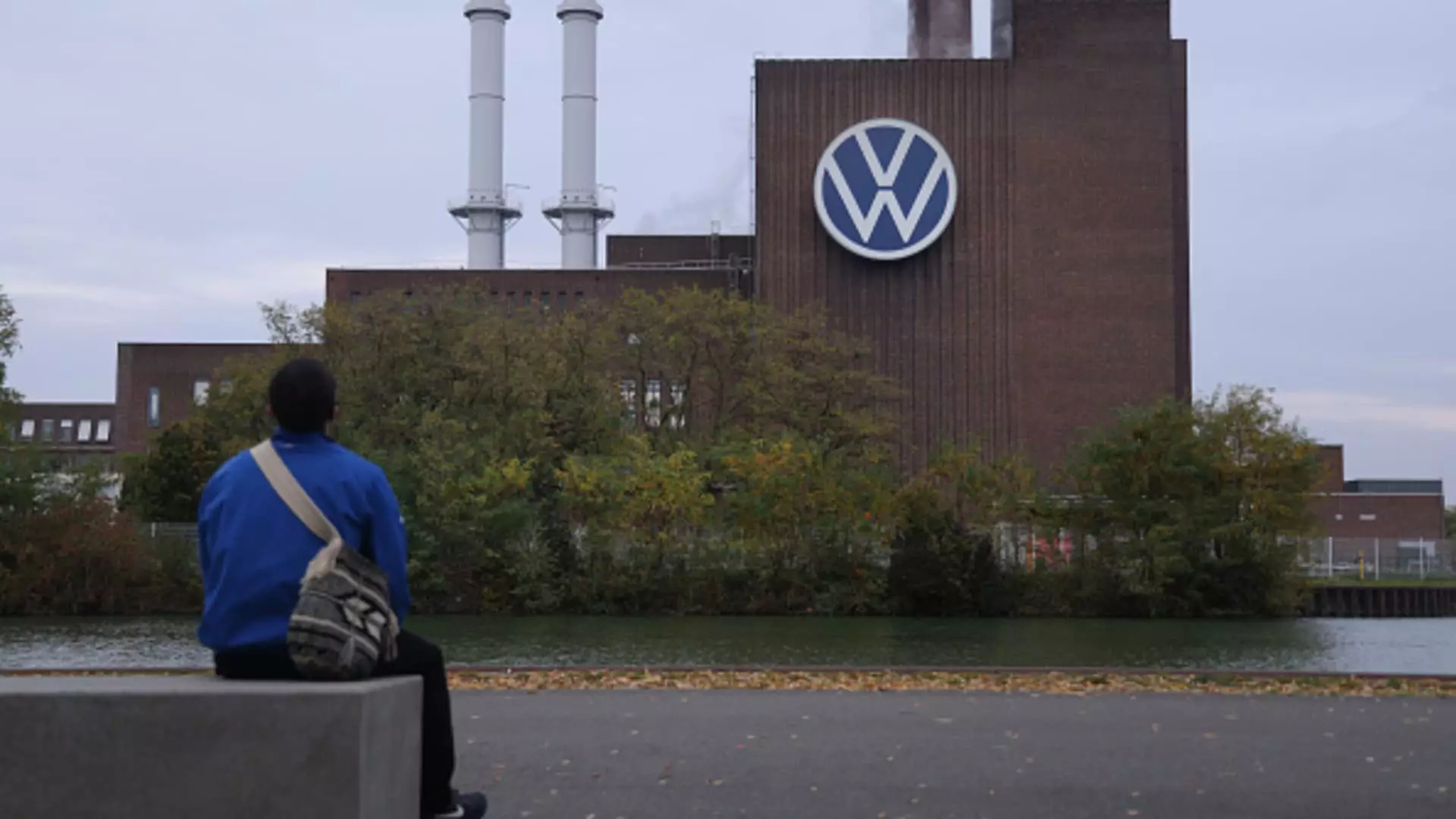The automotive industry in Europe, particularly in Germany, finds itself at a precarious crossroads as President-elect Donald Trump’s planned blanket tariffs loom on the horizon. This potential economic reshuffling not only threatens to upend the prosperity of European car manufacturers but also places them on fragile ground as they grapple with existing economic challenges. Trump’s statements during his campaign, emphasizing his desire to transform German automotive giants into American enterprises, spell dire consequences for a sector that is already witnessing a downturn.
Germany’s automotive sector, long considered the crown jewel of its manufacturing prowess, is facing a crisis of confidence. Companies such as Volkswagen, Mercedes-Benz, and BMW have recently issued profit warnings amid a backdrop of stagnating demand, particularly in key markets like China. Unfortunately for these firms, Trump’s aggressive stance on trade could further exacerbate their struggles. With German automakers exporting approximately €23 billion worth of vehicles to the U.S. last year, any imposition of tariffs would significantly impact their financial health, potentially triggering a ripple effect across the entire European auto supply chain.
Rico Luman, an economist at ING, has pointed out that the automotive industry is inextricably linked to other crucial sectors, including steel and chemicals. Therefore, the ramifications of U.S. tariffs could extend well beyond car manufacturers, affecting suppliers, workers, and ancillary businesses throughout Europe. The unfolding situation serves as a stark reminder of the interconnectedness of global economies and the potential disruption posed by unilateral trade actions.
Throughout his campaign, Trump made headlines with his bold promises and often incendiary language surrounding trade policy. His desire for German auto firms to relocate production to the U.S. reflects not just a protectionist vision but a gut feeling that resounding support resides among his voter base for domestic job creation. However, while these statements may have resonated politically, they also raise fundamental questions about economic viability and the future of free trade agreements like the USMCA, which have facilitated cross-border commerce for years.
Critics argue that this rhetoric, while alarming, may not lead to immediate, realizable policies. For instance, Michael Robinet of S&P Global Mobility described Trump’s remarks as rhetoric that is likely to put pressure on imports, though it remains unclear whether tangible tariffs will materialize. The uncertainty surrounding these policies contributes to the volatility that German car manufacturers currently face, making it difficult for them to plan and forecast with any degree of confidence.
In response to the looming threat of tariffs, German automakers have begun to reassess their strategies for engaging with the U.S. market. Volkswagen, for example, claims that more than 90% of their vehicles sold in the U.S. are produced in North America, thereby qualifying for duty-free treatment under existing agreements. Despite this, shared anxieties remain regarding the potential end of the USMCA, a development that would significantly alter the competitive landscape.
Investors and industry analysts have responded to these uncertainties by driving down the stock prices of major German manufacturers significantly. For example, during the past year, shares of Volkswagen and BMW have plummeted by an estimated 23%, while Mercedes-Benz has experienced a 13% decline. This rapid downward trajectory highlights the market’s reaction to not only the political discourse but also the uncertain economic future that these firms face.
Despite the setbacks posed by Trump’s proposed tariffs, there lies an opportunity for European automotive leaders to accelerate their pivot toward greener technologies and innovations. Julia Poliscanova from Transport & Environment argues that while the short-term forecast for German carmakers may appear grim, such challenges could propel Europe further along the path of electrification and environmental sustainability—key areas that may soon define the automotive industry’s future.
This perspective underscores the importance of adaptability in the face of adversity. If European firms can leverage their technical expertise to stay ahead in the electric vehicle (EV) space, they might not only mitigate the impact of tariffs but also seize growth opportunities that U.S. automakers could struggle to grasp. By doubling down on the European Green Deal and investing in sustainable practices, European manufacturers could create an indomitable legacy that withstands political turbulence.
As the world watches events unfold, one thing becomes unmistakably clear: German automakers are at a crossroads, faced with the dual challenges of rising tariffs and shifting consumer demands. The coming months will be critical in determining not only the fate of these companies but the future of global automotive trade. In navigating these uncertain waters, the key lies in strategic resilience—the ability to adapt and innovate in a rapidly changing and often unpredictable landscape. Whether German car manufacturers can rise to this challenge remains to be seen, but they must act decisively to safeguard their interests and thrive in an increasingly protectionist world.


Leave a Reply